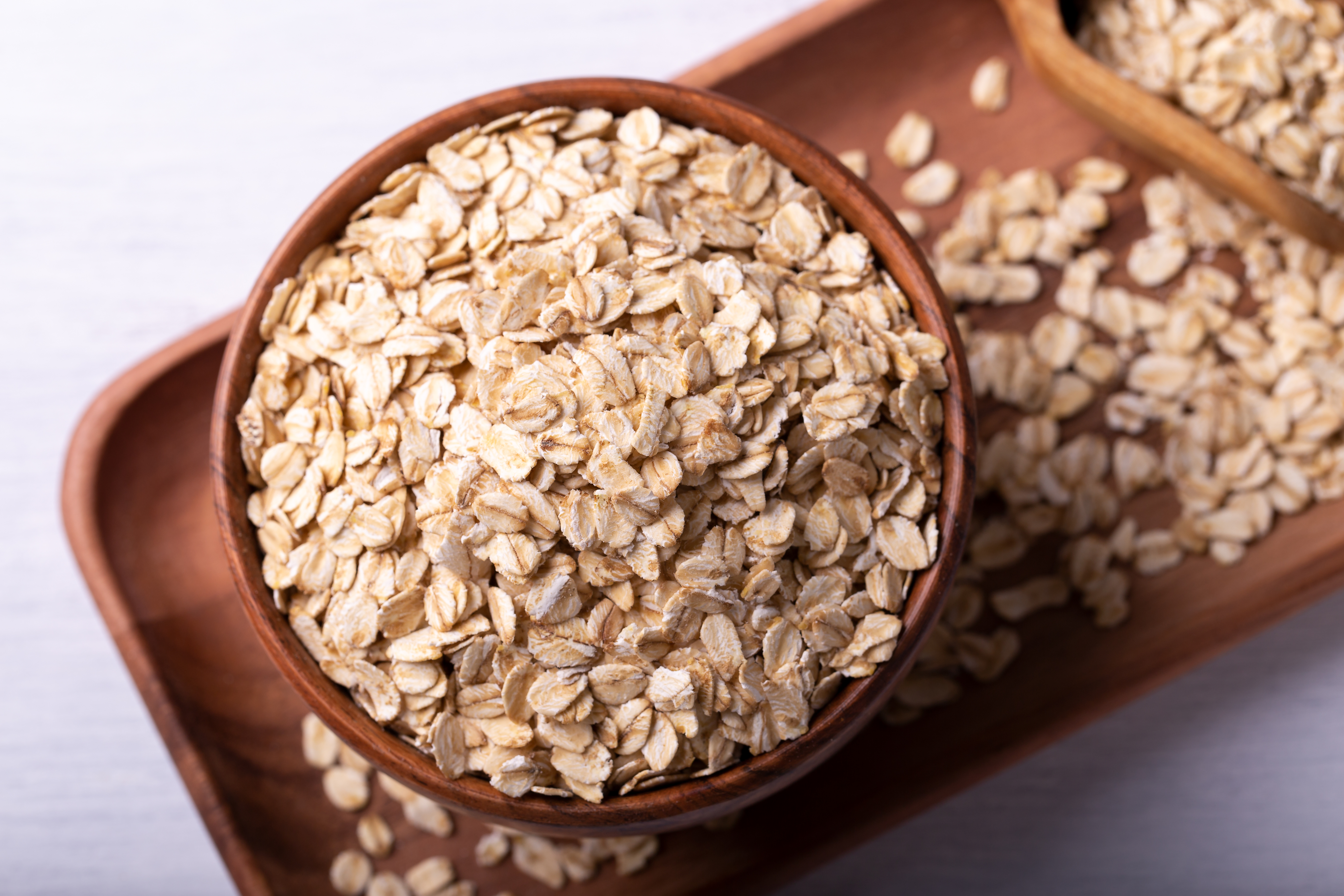From Oatzempic to Longevity: 9 Wildest Health Trends of the Year
In the ever-evolving landscape of health and wellness, each year brings with it new trends that promise to revolutionize the way we approach our well-being. As we stand on the cusp of a new era, it's crucial to understand the forces shaping our health choices. This year, the whirlwind of health trends is more dynamic than ever, driven by technological advancements, innovative research, and a growing awareness of holistic well-being. From the buzz around Oatzempic, a groundbreaking weight management aid, to the age-old quest for longevity, these trends are not just fleeting fads but reflect a deeper shift in how we perceive health. As we delve into these trends, we'll explore how they intersect with our daily lives, influence our decisions, and hold the potential to redefine our future. This comprehensive exploration will guide you through the top 9 health trends of the year, offering insights into their origins, implications, and the science behind them. Whether you're a health enthusiast eager to stay ahead of the curve or someone seeking to make informed choices, this article will equip you with the knowledge to navigate this transformative landscape.
1. Oatzempic Magic: A New Era in Weight Management

The rise of Oatzempic marks a significant milestone in the field of weight management. This novel formulation, derived from oats, has captured the attention of health experts and consumers alike. Unlike traditional weight loss supplements that often rely on synthetic chemicals, Oatzempic harnesses the natural properties of oats, known for their high fiber content and ability to promote satiety. Research indicates that Oatzempic not only aids in weight reduction but also improves metabolic health by regulating blood sugar levels. This dual action makes it a promising tool for individuals struggling with obesity and related metabolic disorders. As the prevalence of obesity continues to rise globally, Oatzempic offers a sustainable and health-conscious solution that aligns with the growing demand for natural and effective weight management strategies. Its emergence reflects a broader trend towards plant-based innovations in the health industry, highlighting the potential of nature-inspired solutions in addressing modern health challenges.
2. The Rise of Personalized Nutrition

The concept of personalized nutrition has gained significant traction, driven by advances in genetic testing and a deeper understanding of individual dietary needs. Unlike traditional dietary guidelines that offer a one-size-fits-all approach, personalized nutrition tailors dietary recommendations based on an individual's genetic profile, lifestyle, and health goals. This trend is rooted in the recognition that each person's body responds differently to food, influenced by genetic predispositions and environmental factors. The rise of wearable technology and health apps has further fueled this trend, providing real-time data that helps individuals make informed dietary choices. Personalized nutrition not only enhances individual health outcomes but also empowers people to take control of their health journey. As we move towards a more individualized approach to health, personalized nutrition represents a paradigm shift in how we understand and implement dietary interventions, offering a glimpse into the future of nutrition science.
3. Mindfulness and Mental Health: More Than Just a Trend

In recent years, mindfulness has transcended its origins as a spiritual practice to become a mainstream tool for enhancing mental health. This trend reflects a growing recognition of the mind-body connection and the importance of mental well-being in overall health. Mindfulness practices, such as meditation and deep breathing exercises, are now widely embraced as effective strategies for reducing stress, anxiety, and depression. The scientific community has increasingly supported these practices, with studies demonstrating their ability to modulate brain activity and promote emotional resilience. As mental health challenges continue to rise, partly exacerbated by the pressures of modern life, mindfulness offers a practical and accessible solution. This trend underscores the shift towards holistic health approaches that prioritize mental well-being alongside physical health. By integrating mindfulness into daily routines, individuals can cultivate a sense of calm and balance, enhancing their overall quality of life.
4. The Gut-Health Connection: Unraveling the Microbiome

The gut microbiome has emerged as a focal point in health research, revealing its profound impact on various aspects of health. This complex ecosystem of trillions of microorganisms plays a crucial role in digestion, immune function, and even mental health. The gut-brain axis, a bidirectional communication pathway between the gut and the brain, highlights the influence of gut health on mental well-being. Emerging research suggests that imbalances in the gut microbiome, known as dysbiosis, are linked to a range of health issues, including obesity, autoimmune diseases, and depression. As a result, there is a growing interest in strategies to support gut health, such as probiotics, prebiotics, and dietary modifications. This trend represents a shift towards understanding health from a systems biology perspective, recognizing the interconnectedness of bodily systems. By prioritizing gut health, individuals can enhance their overall well-being and reduce the risk of chronic diseases.
5. Plant-Based Diets: A Sustainable Health Choice

The shift towards plant-based diets is not just a dietary trend but a movement towards sustainable and ethical living. As concerns about environmental sustainability and animal welfare grow, more people are embracing plant-based diets for their health benefits and lower environmental impact. Research consistently shows that plant-based diets are associated with reduced risks of chronic diseases, such as heart disease, diabetes, and certain cancers. These diets are rich in essential nutrients, fiber, and antioxidants, promoting overall health and longevity. The plant-based movement is also supported by the rise of innovative food technologies, leading to the development of plant-based alternatives that mimic the taste and texture of animal products. This trend reflects a broader shift towards conscious consumption, where individuals consider the impact of their food choices on their health and the planet. By adopting plant-based diets, individuals can contribute to a more sustainable future while reaping the health benefits of a nutrient-rich diet.
6. Digital Health: The Future of Healthcare

The digital health revolution is transforming the way we access and manage healthcare. From telemedicine to health apps, digital technologies are making healthcare more accessible, efficient, and personalized. Telemedicine, in particular, has gained prominence, providing remote consultations and reducing the need for in-person visits. This trend is driven by the increasing demand for convenient and cost-effective healthcare solutions, especially in the wake of the COVID-19 pandemic. Health apps and wearable devices offer real-time health monitoring, empowering individuals to track their health metrics and make informed decisions. The integration of artificial intelligence in healthcare is also enhancing diagnostic accuracy and treatment outcomes. Digital health represents a paradigm shift in healthcare delivery, prioritizing patient-centered care and leveraging technology to improve health outcomes. As digital health continues to evolve, it holds the potential to bridge healthcare gaps and provide equitable access to quality care.
7. Functional Fitness: Beyond the Gym

Functional fitness has emerged as a popular trend, emphasizing exercises that mimic real-life movements and improve overall physical performance. Unlike traditional gym workouts that focus on isolated muscle groups, functional fitness engages multiple muscle groups simultaneously, enhancing strength, balance, and coordination. This trend is rooted in the understanding that fitness should not only improve aesthetics but also enhance daily functioning and prevent injuries. Functional fitness is adaptable to all fitness levels and can be performed with minimal equipment, making it accessible to a wide audience. The rise of functional fitness reflects a broader shift towards holistic health approaches that prioritize functional movement and overall well-being. By incorporating functional exercises into their routines, individuals can improve their physical capabilities, enhance their quality of life, and reduce the risk of injury.
8. Sleep Optimization: The Pillar of Health

Sleep optimization has gained recognition as a crucial component of health, with growing awareness of the impact of sleep on physical and mental well-being. Poor sleep quality is linked to a range of health issues, including obesity, cardiovascular disease, and cognitive decline. As a result, there is a growing interest in strategies to improve sleep quality, such as sleep hygiene practices, relaxation techniques, and sleep tracking technologies. The rise of sleep optimization reflects a broader understanding of health as a holistic concept, where quality sleep is recognized as a foundational pillar of well-being. By prioritizing sleep, individuals can enhance their overall health, improve cognitive function, and reduce the risk of chronic diseases. This trend underscores the importance of a balanced lifestyle that incorporates adequate rest and recovery.
9. Longevity Strategies: The Quest for a Longer Life

The quest for longevity has been a longstanding pursuit, driven by the desire to extend lifespan and improve quality of life. Recent advances in aging research have shed light on strategies to promote longevity, such as caloric restriction, intermittent fasting, and the use of senolytics—compounds that target aging cells. These strategies are supported by a growing body of evidence suggesting that lifestyle interventions can modulate the aging process and reduce the risk of age-related diseases. The rise of longevity strategies reflects a broader shift towards preventive health approaches that prioritize healthy aging and disease prevention. By adopting longevity-promoting practices, individuals can enhance their healthspan—the period of life spent in good health—and enjoy a higher quality of life in their later years.
Embracing the Future of Health

As we navigate the whirlwind of this year's top health trends, it's clear that the future of health is dynamic, interconnected, and driven by a desire for holistic well-being. From the innovative Oatzempic to the timeless quest for longevity, these trends reflect a deeper understanding of health as a multifaceted concept that encompasses physical, mental, and environmental dimensions. As individuals, we have the power to shape our health journey by embracing these trends and making informed choices that align with our values and goals. The health revolution is here, and by staying informed and proactive, we can harness its potential to improve our lives and the world around us.